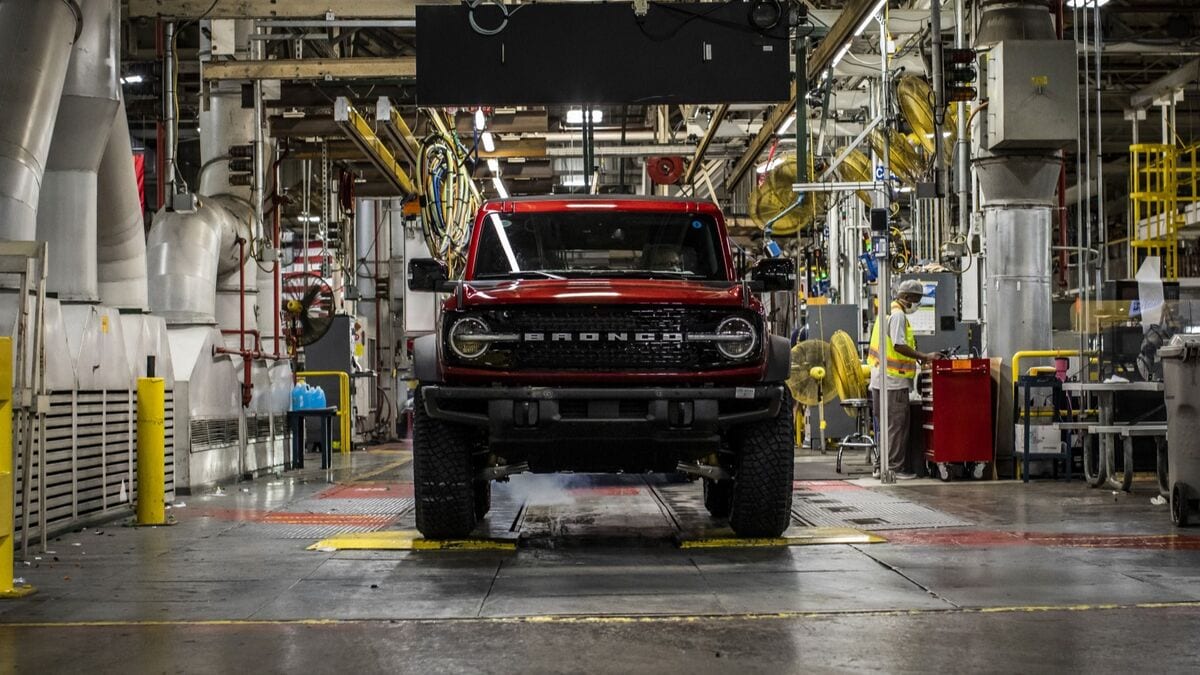- Ford has now issued 103 safety recalls in 2025, with a third of the year left to go
- The old record was 77 in a single year
Before 2025, the record for the most safety recalls an automaker had ever issued in a single year was 77, and it took a scandal to get that high.
Ford has issued 103 recalls so far in 2025, with more than a third of the year left to go.
General Motors set the old record in 2014 amid a controversy over faulty ignition switches, ultimately blamed for more than 100 deaths. Ford surpassed it about halfway through 2025, and the numbers are still rising.
The federal government’s National Highway Traffic Safety Administration (NHTSA) sends out recall notices in batches every Monday morning. This morning’s tally included eight for Ford, pushing the company over the century mark.
At its current pace, Ford could double the dubious record.
Safety Issues, Not Just Quality Problems
- A recall is a legally required fix for a safety problem
Under federal law, automakers must fix any safety problem with a car for free. They must contact owners to warn them, though automakers tell us they struggle to get owners to pay attention to recalls. The law requires safety fixes for 15 years after a car is first sold. Many automakers, however, will fix older models under recall for free.
The average car on American roads is now 12.8 years old, meaning many 15-year-old vehicles are still in daily use.
NHTSA administers the recall process. Though most automakers conduct them voluntarily, the agency can force a recall if it deems it necessary.
Recalls don’t apply to quality issues, only safety problems. However, the agency takes a broad view of safety, forcing recalls over everything from faulty airbags to plastic trim parts that could fall off and become road debris.
Ford Has a Long-Running Recall Problem
- The company has led the industry in recalls for three of the last four years
- A federal investigation forced it to make changes
Ford led the auto industry in recalls in both 2022 and 2023. At that point, NHTSA stepped in, fining the company $165 million and forcing it to write a plan to address the ongoing problem.
The company hired a new head of quality and started holding vehicles at the plant for extra inspections before sending them to dealers.
It briefly appeared to work. In 2024, Tesla and Stellantis led the industry in recalls.
But Ford has surged back into the lead in 2025, in part because of the consent decree it signed with NHTSA.
The agreement required Ford to audit old repair campaigns to determine their effectiveness, which triggered a round of recalls.
Many Are Repeats Because Old Fixes Failed
- An audit uncovered many software updates that hadn’t been installed correctly
- That has Ford repeating dozens of older recalls
There’s no single explanation for Ford’s 2025 recall problem. But more than a third of the recalls this year have their roots in that audit.
Many recalls today fix software issues. The audit uncovered a problem with the system Ford used to install software updates.
It could report a successful update even when the software installation failed. Dealers had returned some cars to owners, believing they were fixed when they weren’t.
In a statement, Ford explained, “The vast majority of recall repairs were successful, with the correct software version installed on the relevant module.” But in many recalls, a small percentage failed. The company can identify which vehicles didn’t get a proper update. So it is repeating portions of dozens of older recalls to install updates a second time.
A new process lets dealers verify the patch before returning a car to its owner.
What Else Ford Is Doing
- Ford has hired more inspectors and developed AI tools that search for defects
- Executives are working alongside factory workers to see assembly first-hand
Software failures alone don’t explain the problem. Ford would have broken the record this year even without the re-recall issue.
The company has taken several steps to try to address recurring quality issues. A company spokesperson said last month that Ford “has more than doubled its team of safety and technical experts in the past two years and significantly increased testing to failure on critical systems such as powertrains, steering, and braking.”
It has also developed new AI-powered tools to search for defects, and sent executives into factories on regular rotations to learn about assembly processes from front-line workers.








